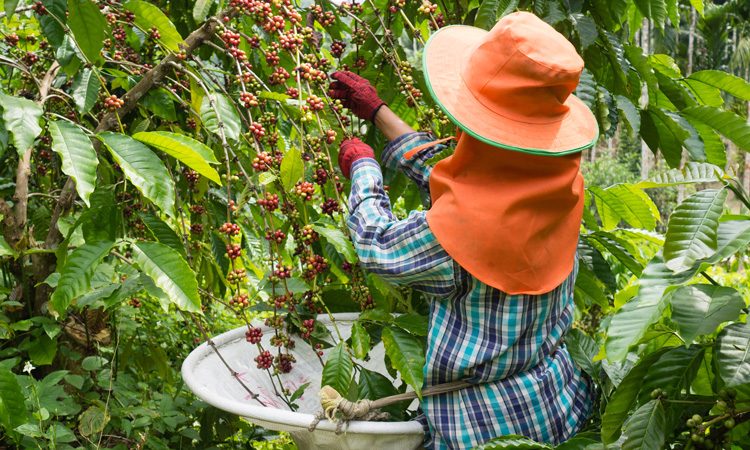Coffee industry threatened by climate change
- Like
- Digg
- Del
- Tumblr
- VKontakte
- Buffer
- Love This
- Odnoklassniki
- Meneame
- Blogger
- Amazon
- Yahoo Mail
- Gmail
- AOL
- Newsvine
- HackerNews
- Evernote
- MySpace
- Mail.ru
- Viadeo
- Line
- Comments
- Yummly
- SMS
- Viber
- Telegram
- Subscribe
- Skype
- Facebook Messenger
- Kakao
- LiveJournal
- Yammer
- Edgar
- Fintel
- Mix
- Instapaper
- Copy Link
Posted: 27 September 2019 | Sam Mehmet (New Food) | No comments yet
Coffee farmers need support from industry and government as climate change puts the future of coffee at risk, says Olam Coffee CEO.


According to Olam Coffee, of Olam International, a food, ingredients, feed and fibre supplier, coffee farmers will be left in “limbo” unless industry and governments act fast to ease the current price crisis and provide future price stability as they face the impacts of climate change.
In 2015, the International Center for Tropical Agriculture (CIAT) forecast that almost 20 percent of the world’s producing land for Arabica coffee could be unsuitable by 2050 due to climate change, with regional differences.
“With farmers now in the second year of very low prices, the industry fully recognises the scope of what must be achieved under the London Declaration, but we must act quickly. It is critical to find a way to give farmers a safety net that will also help them be resilient in the face of climate change,” explained Olam Coffee CEO, Vivek Verma.
“At these very low prices, millions of farmers are forced to sell much below the costs of production. If coffee were a product of the developed world there would have been some price stabilisation mechanism put in place or, at the very least, there would have been subsidies at low prices.
“Unfortunately, coffee is grown in mostly developing and underdeveloped countries, which do not have the means to support farmers in times of low prices. I believe it is time to seriously look at implementing a price stabilisation fund that will subsidise farmers when prices are low for reducing production capacity over the short-term, while helping them mitigate the long-term impacts of climate change. The fund would then recoup the subsidy when prices are high without any burden to local government budgets. Despite the different situations of producing countries, I believe this is achievable if the ICO, development organisations, commercial banks and the industry come together.”
Extreme weather patterns caused by climate change can alter the flowering and fruiting cycles in coffee producing countries. Weather changes can also see an increase in pests and diseases, such as rust. Verma explains that farmers often lack the means to invest in resilient hybrids and adaptation methods, and some origins can no longer support coffee production.
Olam Coffee is hoping to achieve greater impact in its sustainability programme by opening up its supply chains to customers via a new sustainability sourcing offer called AtSource.
“By tracking the whole journey of the coffee beans, AtSource provides our manufacturing and retail customers with a verified social and environmental footprint of their supply chain, right from the farm to the factory gate. The insight gives them greater visibility into how we can, together, make farmers and landscapes more resilient. Our sustainability and carbon reduction efforts include our own coffee estates,” Verma added.
Other actions that Verma believes are critical in re-imagining the coffee sector include upskilling farmers to improve quality for higher income. Alongside yield improvements, post-harvest techniques will increase earning potential. Farmers can then apply the new processes to produce differentiated or specialty coffees, which cost more on the market and could help to safeguard single-origin blends.
“With so much in the news, it is easy for everyone, even those of us seeing the impacts of climate change, to switch off. But we need to keep advocating for reduced emissions at home, at work and in society. We all rely on coffee to get us through the day, now coffee must rely on us,” Verma concluded.
Related topics
Beverages, Environment, Supply chain, Sustainability, Traceability, Trade & Economy
Related organisations
International Center for Tropical Agriculture (CIAT), Olam Coffee, Olam International Limited








